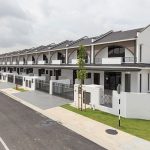If you have never bought a residential property before, a first time home buyer’s FAQ (Frequently Asked Questions) could save you not just dollars, but also some heartaches as you close on your first home.
By: Phoenix Lee/
The first question any first time home buyer’s FAQ should attempt to answer is “who is a “first time” homebuyer?”
If you are buying a HDB (Housing & Development Board) flat, the HDB has clear guidelines as to who it considers to be first time home owner. You will be considered a first-timer applicant if you have not received any housing subsidy from HDB. This means that you must not:
- Be the owner of a flat bought from HDB
- Have sold a flat bought from HDB
- Have bought an Executive Condominium (EC), Design, Build and Sell Scheme (DBSS) flat or an HDB resale flat with CPF Housing Grant, or taken over ownership of such a flat or EC
- Have transferred the ownership of a flat bought from HDB, or an HDB resale flat bought with a CPF Housing Grant
- Have ever taken other forms of housing subsidy, such as Selective En bloc Redevelopment Scheme benefits or HUDC estate privatisation
First-timer families can receive up to $120,000 in grants when buying a resale flat, and up to $80,000 when buying a new flat.

https://www.icompareloan.com/resources/cpf-housing-grants/
If you are considering buying a private residential apartment, the restrictions which apply to HDB flat buyers do not apply to you.
The second important question first time home buyer’s FAQ should attempt to answer is how much down payment and closing costs would I incur
Table of Contents
Down payment is a percentage of the purchase price of a home. Lenders require that borrowers must invest a certain percentage of the purchase price in the home. It is an assurance to the lender that the borrower is willing to make an equity commitment (investment) to the property.
The amount to pay as downpayment for HDB flat depends on whether you are:
- Taking an HDB housing loan
- Not taking any housing loan
- Taking a bank loan
Any first time home buyer’s FAQ, should not ignore the first time home hunters of private properties. If you are buying a private property, you will also not be affected by the Additional Buyer’s Stamp Duty (ABSD), but will be affected by the reduced Loan-to-value ratio.
There is a slight impact on the loan-to-value ratio. This means a lesser loan available for your house.
In short, there is a 5% reduction in every category of loans. So if originally the Loan-to-value is 80%, it becomes 75%.
For example, a 75% loan-to-value means a downpayment of 25%, made up of 5% cash and 20% CPF (provided you have enough CPF).
For example, for a $1,000,000 house:
- $50,000 cash downpayment
- $200,000 CPF Ordinary account balance (OA) for downpayment
- Buyer Stamp Duty (BSD), 1% on the first $180,000, 2% on the second $180,000 and 3% on the next $640,000 and 4% thereafter. For a S$1m property, the 4% stamp duty does not apply.
- Loan-to-value of 75%, that is $750,000. This 75% of loan is subjected to the usual Total debt servicing ratio (TDSR) which limits the person’s overall debt to be within 60% of a his/her gross income.
https://www.icompareloan.com/resources/new-launch-condo-home-loans-cooling/
Most mortgages for first time home buyers would require a minimum down payment of at least 10% – 25%, depending upon the loan type and terms, with the mortgage financing the balance of the purchase price. Closing costs are the other, non-down payment costs, paid at closing. Closing costs include the total costs and fees associated with closing a loan, including property taxes, fees (e.g. legal, conveyancing) , and insurance premium. Be mindful that closing costs can be substantial for first-time home buyers.
The third important first time home buyer’s FAQ should answer the question – “what are the 3 most important steps to do before I buy a home?”
In today’s market, the best steps that you can take to prepare for buying a home are:
- Improve your credit score;
- Increase your household savings/reserves;
- Be prepared to make a minimum cash down payment
How to Secure a Home Loan Quickly
For a first time homebuyer, planning to buy a new private home could be stressful as you may be ensure of funds availability for purchase. But worry not, because iCompareLoan mortgage broker can set you up on a path that can get you a home loan in a quick and seamless manner. We are the experts who do the work for you for free, while you lean back, rest and rely on our professionalism at absolutely no cost to you.
Our brokers have close links with the best lenders in town and can help you compare Singapore home loans and settle for a package that best suits your home purchase needs. Find out money saving tips here.
Whether you are looking for a new home loan or to refinance, the Mortgage broker can help you get everything right from calculating mortgage repayment, comparing interest rates all through to securing the best home loans in Singapore. And the good thing is that all our services are free of charge. So it’s all worth it to secure a loan through us.
For advice on a new home loan.
For refinancing advice.






